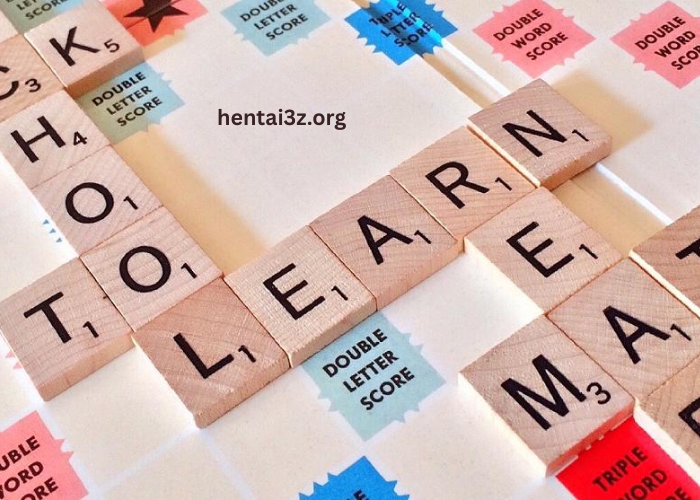Learning new words does not have to feel like schoolwork. In fact, one of the most fun and effective ways to boost your vocabulary is by solving word puzzles. Whether you are a student, a professional, or just someone who enjoys language, word puzzles challenge your brain while helping you discover and remember new words. Word puzzles are more than just games. They improve spelling, reading comprehension, memory, and even your ability to express thoughts clearly. You might be surprised how many new words you can learn while having fun.
Why Word Puzzles Are Good for Vocabulary
There are several reasons why word puzzles are excellent tools for vocabulary building:
- They reinforce spelling and pronunciation by repeating words in fun formats
- They introduce synonyms, antonyms, and idioms in a memorable way
- They encourage logical thinking and pattern recognition
- They create strong word associations, making new words easier to recall
- They are fun and engaging, so learning feels effortless
Word puzzles are also flexible and funny bugtong bugtong with answer. You can use them with any age group, learning style, or language level.
Types of Word Puzzles That Build Vocabulary
Here are some of the best word puzzles you can use to expand your vocabulary while keeping your brain active:
1. Crossword Puzzles
These classic puzzles challenge you to fill in words based on clues. Crosswords help with:
- Word definitions
- Spelling accuracy
- Understanding word usage in context
They are especially good for improving general knowledge alongside vocabulary.
2. Word Searches
In this puzzle, you search for hidden words in a grid. Word searches boost:
- Word recognition
- Spelling retention
- Speed and visual scanning
Teachers and parents often use word searches to reinforce weekly vocabulary words.
3. Anagram Puzzles
Anagrams require you to rearrange letters to form new words. This helps improve:
- Spelling flexibility
- Pattern recognition
- Creative word association
Example: “listen” becomes “silent”.
4. Word Ladders
In a word ladder, you change one letter at a time to reach a final word. Each step forms a valid word.
Example: cold → cord → card → ward → warm
This type of puzzle improves:
- Spelling
- Vocabulary depth
- Logical sequencing
5. Fill in the Blanks
These puzzles give you a sentence with a missing word. You must figure out the adivinanzas para niños difíciles based on the context.
Example:
He showed great _____ by helping the injured bird.
Answer: kindness
This type improves:
- Contextual word understanding
- Grammar
- Vocabulary usage in real situations
6. Matching Puzzles
Match a word to its synonym, antonym, or definition. These are great for:
- Building stronger vocabulary connections
- Learning multiple meanings
- Preparing for exams or spelling bees
7. Word Scrambles
In this fun puzzle, the letters of a word are mixed up and the player must unscramble them.
Example: ENLOVRACUBA = VOCABULARY
This boosts attention to detail and spelling recall.
Tips for Using Word Puzzles to Learn New Words
Here are some helpful ways to get the most from your word puzzle experience:
- Keep a vocabulary journal to write down new words you learn
- Use new words in sentences after each puzzle
- Group words by theme or topic for better recall
- Practice regularly to keep your brain sharp
- Try puzzles at increasing levels of difficulty to keep challenging yourself
You can even turn puzzle time into a group activity or competition, which adds a social and motivating element to learning.
Word Puzzle Examples to Try Right Now
Try solving these simple puzzles:
Anagram: Rearrange the letters to form a real word
1. TAEHC – (Hint: someone who works in a classroom)
Answer: TEACH
Fill in the blank:
2. The _____ was bright and full of stars.
Answer: Sky
Word Ladder: Change one letter at a time
3. Start with WORD, end with WARM
WORD → ____ → ____ → ____ → WARM
One possible answer: WORD → WARD → WARM
Benefits Beyond Vocabulary
Word puzzles do not just improve your vocabulary. They also:
- Enhance problem solving skills
- Support mental focus and patience
- Improve reading fluency
- Strengthen short term memory
For children, they are a fun way to build a strong language foundation. For adults, they help keep the mind sharp and alert.
Final Thoughts
Word puzzles are a powerful and enjoyable way to grow your vocabulary at any age. With so many types available, there is always something new to try. Whether you are solving a crossword, spotting hidden words in a grid, or decoding anagrams, each puzzle is another step toward a richer vocabulary and a sharper mind. So pick up a pencil, download a puzzle app, or print out a worksheet. A few minutes a day with word Anime puzzles can lead to lasting improvements in how you speak, write, and understand the world around you.

